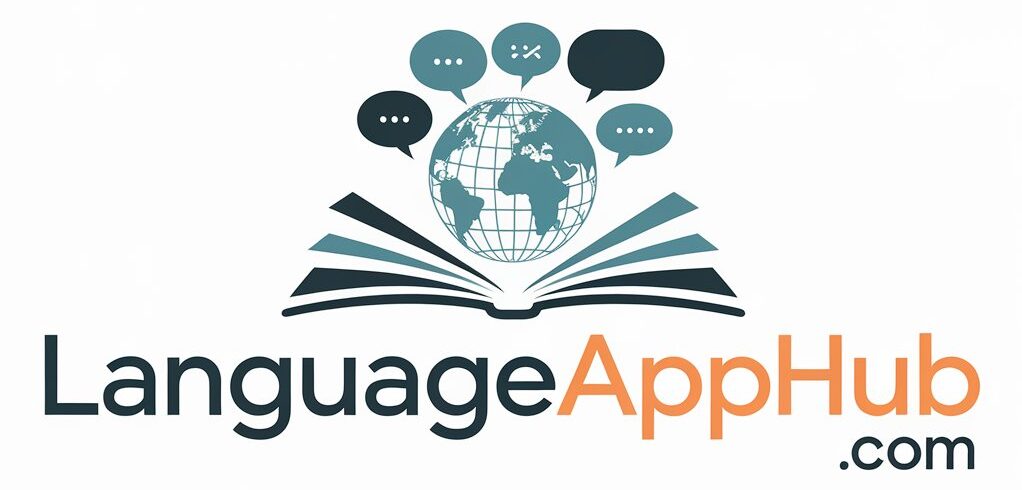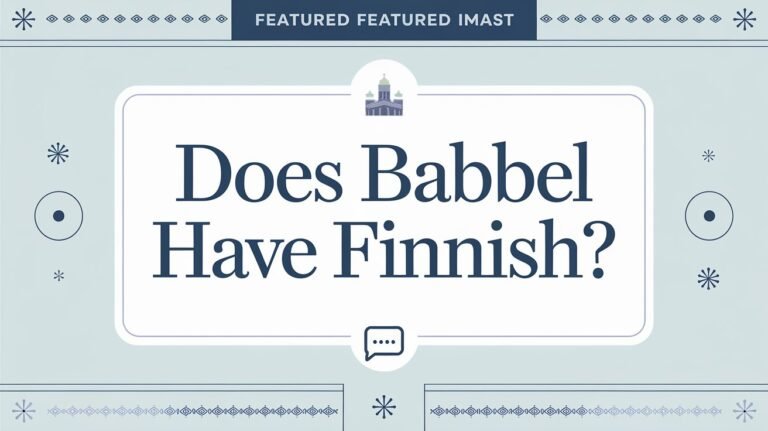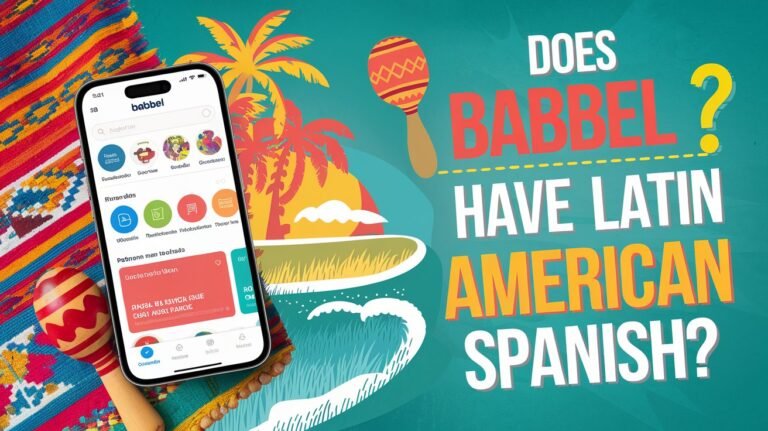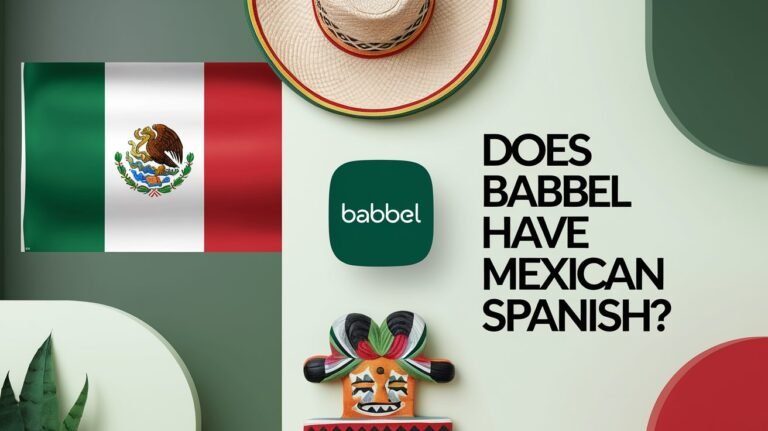Understanding Babbel’s Language Offerings? What Languages Are Available

Why Babbel Focuses on European Languages
Babbel is well-known for its emphasis on European languages. This focus is largely due to the platform’s origins and the demand from its primary user base. European languages like Spanish, French, and German are popular choices for learners, often driven by travel, business, or cultural interests. Babbel caters to these needs by offering comprehensive courses that cover these languages in depth.
The Absence of Arabic in Babbel’s Courses
Currently, Babbel does not offer courses in Arabic. This absence might seem surprising given Arabic’s global significance and the number of people who speak it. However, the complexity and diversity of Arabic dialects pose challenges for a platform like Babbel, which aims to provide a streamlined learning experience. The lack of Arabic courses on Babbel highlights the platform’s strategic focus on languages that align with their existing educational model.
Future Prospects for Babbel Arabic
While Arabic is not available on Babbel right now, there’s always the possibility of future expansion. As the demand for Arabic grows, Babbel might explore ways to incorporate it into their offerings. This could involve developing new teaching methodologies or collaborating with experts in Arabic linguistics to address the unique challenges of teaching this language. The platform’s ability to adapt and expand could eventually lead to the inclusion of Arabic, meeting the needs of a broader audience.
Why Arabic is Not Offered by Babbel
Challenges of Teaching Arabic
Teaching Arabic isn’t a walk in the park. The language is tough for English speakers because its grammar, writing, and pronunciation are so different from English. The Foreign Service Institute even says it’s one of the hardest languages for English speakers to learn. This makes crafting a good Arabic course a real challenge.
Dialect Diversity in Arabic
Arabic isn’t just one language; it’s a whole bunch of dialects. And guess what? They’re not all the same. Someone learning Egyptian Arabic might not understand Moroccan Arabic at all. This mix of dialects makes it tricky for language apps like Babbel to create a one-size-fits-all course.
Market Demand for Arabic Courses
There’s a lot of interest in learning Arabic, but Babbel hasn’t jumped on the bandwagon yet. They focus more on European languages, which are more straightforward to teach. Even though there’s demand, the complexity and diversity of Arabic might be why Babbel hasn’t offered it yet.
Arabic is a fascinating language with a rich history and cultural significance, but its complexity and diversity pose significant challenges for language learning platforms like Babbel. The absence of a unified standard and the need for a tailored approach to different dialects make it a daunting task for app developers.
Exploring Alternatives to Babbel for Arabic

Top Arabic Language Apps
If you’re looking to dive into Arabic, Babbel might not be the place to start, but there are some solid alternatives out there. Talk In Arabic is a standout option, especially if you’re interested in spoken dialects. It covers eight different dialects, from Egyptian to Moroccan, and offers a mix of video and audio lessons. Another app worth checking out is Rocket Arabic, which focuses on the Egyptian dialect and combines audio lessons with cultural insights. Then there’s Pimsleur, known for its audio-only approach, which is great for picking up conversational skills quickly.
Comparing Babbel and Arabic Alternatives
When you put Babbel side-by-side with these Arabic alternatives, you’ll notice some key differences. Babbel excels in structured, interactive lessons for European languages, but it falls short in offering Arabic. On the other hand, apps like Talk In Arabic and Pimsleur provide rich audio content that helps learners immerse themselves in the language. Rocket Arabic also shines with its comprehensive approach, blending grammar, vocabulary, and cultural context. While Babbel offers a polished interface and gamified learning, these alternatives focus more on practical language use and cultural nuances.
User Reviews of Arabic Learning Platforms
User feedback is a goldmine for understanding the strengths and weaknesses of any language app. Talk In Arabic users often praise its diverse dialect coverage and practical lesson topics. Rocket Arabic gets nods for its engaging lessons and thoroughness, while Pimsleur is loved for its simplicity and effectiveness in teaching spoken Arabic. However, some users wish for more grammar-focused content, which is where Babbel typically excels in other languages. Overall, these alternatives offer a range of experiences, catering to different learning styles and preferences.
The Complexity of the Arabic Language
Arabic Grammar and Pronunciation
Arabic grammar is like a puzzle with many pieces that fit together in unexpected ways. It has a unique structure, with verbs often coming before subjects, and a rich system of roots and patterns that create words. Pronunciation adds another layer of complexity. Arabic sounds are distinct, with some letters that don’t exist in English, like the guttural ‘ayn’ and the emphatic ‘qaf’. Mastering these sounds can be tricky, but it’s essential for clear communication.
Differences Between Arabic Dialects
Arabic isn’t just one language; it’s a collection of dialects that can be as different as Spanish and Italian. From Egyptian to Moroccan to Levantine, each dialect has its own vocabulary and pronunciation quirks. This diversity means that learning Arabic often involves choosing a specific dialect to focus on. Here’s a quick look at some major dialects:
- Egyptian Arabic: Widely understood due to Egypt’s media influence.
- Levantine Arabic: Spoken in countries like Lebanon and Syria.
- Gulf Arabic: Common in countries around the Persian Gulf.
Why Arabic is Considered Difficult
Many learners find Arabic challenging because it’s so different from English. The script is written from right to left, which can be disorienting at first. Plus, the language uses a dual grammatical number, not just singular and plural, but also a form for exactly two. This, combined with the vast vocabulary and complex verb system, makes Arabic a tough nut to crack.
Arabic is a journey, not just a destination. Each step in learning it opens up new cultural and linguistic landscapes, making the effort worthwhile.
Popular Arabic Learning Platforms
Features of TalkInArabic.com
TalkInArabic.com stands out as a versatile tool for those interested in spoken Arabic dialects. Covering eight distinct dialects, including Egyptian, Saudi, and Tunisian, this platform offers a wide range of resources. Instead of a traditional course, it’s more of a comprehensive library with video and audio lessons. The interactive subtitles feature is a game-changer, allowing users to click on words for definitions, making learning both engaging and informative. Lessons are brief and focused, which is perfect for quick learning sessions.
Rocket Arabic’s Unique Approach
Rocket Arabic is well-known for its structured learning path, focusing primarily on the Egyptian dialect. It offers a mix of audio lessons, grammar, and cultural insights, making it ideal for learners who prefer a more organized approach. The course is designed to take you from the basics to advanced levels, incorporating reading and writing Arabic script. Voice recognition technology helps ensure correct pronunciation, adding a layer of interactivity to the learning process.
Pimsleur Arabic: An Audio-Only Course
Pimsleur Arabic is a fantastic option for those who thrive on audio learning. It offers courses in both Eastern and Egyptian Arabic, focusing on practical vocabulary and conversational skills. The Pimsleur method is all about listening and recalling, using a spaced-repetition system to reinforce language retention. This approach is excellent for travelers or anyone needing to learn Arabic quickly without the need for visual aids.
For anyone eager to learn Arabic, these platforms offer diverse methods and cater to different learning preferences. Whether you prefer interactive subtitles, structured courses, or audio-only lessons, there’s an option out there that fits your style.
Evaluating ArabicPod101 as an Alternative
Podcast-Based Learning with ArabicPod101
ArabicPod101 is like having a personal Arabic tutor right in your pocket. It’s an audio-driven platform, which is refreshing because you get to hear real conversations. The lessons are podcast-style, featuring dialogues between native speakers and learners, which is a big plus. You can listen to the whole conversation or break it down into smaller parts to really get the hang of it. It’s a great way to improve your listening skills and pick up essential vocabulary and grammar along the way.
Strengths and Weaknesses of ArabicPod101
One of the biggest strengths of ArabicPod101 is its affordability. It’s cheaper than many other language learning apps, including Babbel, which makes it accessible to more people. Plus, it offers lessons in different dialects like Egyptian, Moroccan, and Modern Standard Arabic. But here’s the catch: the course structure can be a bit confusing. The pathways aren’t always clear, so you might find yourself jumping around a bit. It’s not a deal-breaker, but it’s something to keep in mind.
User Experiences with ArabicPod101
Users generally have good things to say about ArabicPod101. They appreciate the variety of content and the fact that it’s regularly updated. However, some users feel that while it’s a great starting point, it might not be the best option for intermediate learners. The platform shines in its beginner and early intermediate levels, but if you’re looking to advance beyond that, you might need to supplement it with other resources.
ArabicPod101 stands out for its engaging audio content and flexibility, making it a solid choice for beginners eager to start learning Arabic. Just remember, it works best when used alongside other learning tools to fill in any gaps.
The Role of Dialects in Learning Arabic
Understanding Egyptian Arabic
When diving into the world of Arabic, Egyptian Arabic stands out as one of the most widely understood dialects across the Arab world. It’s the dialect of Egypt, a country with a rich history and a significant influence in media and film. Many learners start with Egyptian Arabic because of its prominence in popular culture, making it a practical choice for those interested in engaging with Arabic media or visiting Egypt.
Levantine Arabic for Beginners
Levantine Arabic, spoken in countries like Lebanon, Syria, Jordan, and Palestine, offers its own set of challenges and rewards. This dialect is known for its melodic tone and is often regarded as one of the more approachable forms of Arabic. For beginners, starting with Levantine Arabic can be beneficial, especially if they have connections or interests in the Levant region. The dialect’s unique expressions and vocabulary provide a fascinating glimpse into the culture and daily life of its speakers.
Choosing the Right Dialect for You
Selecting the right Arabic dialect depends largely on your personal goals and interests. Whether you’re planning to travel, communicate with friends, or work in a specific region, your choice of dialect can greatly impact your learning journey. Consider these factors:
- Geographical Relevance: Choose a dialect based on the region you plan to visit or work in.
- Cultural Interests: If you’re drawn to a particular culture or media, select the dialect that aligns with those interests.
- Language Resources: Availability of learning materials and resources can also guide your decision.
Remember, while dialects may seem daunting at first, they offer a rich tapestry of linguistic diversity that enhances your understanding of the Arab world. Embracing a dialect not only aids communication but also deepens your appreciation of the region’s cultural nuances.
Cultural Insights Through Language Learning

Arabic Culture in Language Courses
Diving into Arabic culture while learning the language isn’t just about picking up words and phrases. It’s about experiencing a way of life that’s rich in history, art, and tradition. Arabic courses often weave in cultural elements, giving learners a taste of everything from traditional music to the intricacies of social etiquette. Understanding these cultural nuances can make the language come alive in a way that textbooks alone can’t achieve.
Incorporating Cultural Context in Lessons
When language lessons include cultural context, they become more than just vocabulary drills. You start to see how language and culture are intertwined. For instance, learning about Arabic hospitality can explain why certain phrases are so important in everyday conversation. This cultural context can be a game-changer, making lessons not just educational, but also engaging and relevant.
Benefits of Cultural Understanding
Grasping the cultural aspects of a language can open doors to deeper connections with native speakers. It can enhance communication, as you not only speak the words but also understand the cultural significance behind them. This understanding can foster mutual respect and appreciation, making interactions more meaningful.
Learning a language is like opening a window to another world. Through this window, you get to see how people live, think, and express themselves. It’s not just about words, it’s about stories, traditions, and a shared human experience.
Future Trends in Language Learning Apps
The Rise of Mobile Language Apps
In the past few years, mobile language apps have skyrocketed in popularity. People love the convenience of learning on-the-go, squeezing in a quick lesson during a commute or lunch break. Mobile apps offer flexibility that traditional classroom settings just can’t match. Whether you’re waiting for a friend or relaxing at home, these apps make language learning accessible anytime, anywhere.
Innovations in Language Learning Technology
Technology is shaking up the way we learn languages. With AI and machine learning, apps now personalize lessons to fit your pace and style. Some apps even use voice recognition to help you nail pronunciation. There’s also virtual reality, which can immerse you in a language environment, making practice feel more real and engaging. These tech advances are not just cool—they’re changing how effective language learning can be.
Predictions for Arabic Language Courses
Arabic is gaining traction as a language people want to learn, and apps are starting to catch on. While Babbel doesn’t offer Arabic (yet), other apps are stepping up. We can expect more apps to offer Arabic courses, focusing on dialects like Egyptian and Levantine Arabic. As demand grows, these courses will likely become more interactive and tailored to different learning needs. Keep an eye out for new features that make learning Arabic as fun and engaging as learning any other language.
Comparing Language Learning Methodologies
Audio vs. Visual Learning Methods
When it comes to picking a way to learn a language, audio and visual methods are like night and day. Some folks swear by listening to podcasts or audio courses while they’re commuting or doing chores. It’s like learning on the go, and it can really help with pronunciation and listening skills. On the flip side, visual learners might find they need to see words and grammar rules to really get them. Flashcards, videos, and interactive apps can be a lifesaver here. Finding what clicks for you is key.
The Impact of Spaced Repetition
Spaced repetition is kinda like that friend who keeps reminding you about something until it sticks. It’s a technique where you review information at increasing intervals, which helps cement it in your brain. Language apps like Anki and Pimsleur use this method to help learners remember vocabulary and phrases. It’s super effective, especially for long-term retention. You might not even realize how much you’re learning until you find yourself recalling words without even trying.
Interactive vs. Traditional Learning
There’s something about interactive learning that’s just more engaging than sitting in a classroom. Apps and online platforms offer games, quizzes, and real-time feedback, making learning feel more like play than work. Traditional methods, like textbooks and lectures, have their place too, especially for those who prefer a structured environment. However, the rise of interactive tools is undeniable, offering a dynamic and often more personalized approach to language learning.
Learning a language is a personal journey, and there’s no one-size-fits-all approach. Whether you lean towards audio, visual, interactive, or traditional methods, the best way is the one that keeps you motivated and excited to learn more.
Conclusion
So, there you have it. Babbel might not have an Arabic course yet, but that doesn’t mean you’re out of luck. There are plenty of other options out there that can help you dive into the world of Arabic. Whether it’s TalkInArabic.com with its focus on dialects, Rocket Arabic’s structured approach, or Pimsleur’s audio lessons, there’s something for everyone. Each of these alternatives brings something unique to the table, so you can find what works best for you. While we wait for Babbel to possibly expand its offerings, these resources are more than capable of getting you started on your Arabic learning journey. Happy learning!
Frequently Asked Questions
Does Babbel offer Arabic lessons?
No, Babbel does not currently offer Arabic lessons. They focus mostly on European languages.
Why doesn’t Babbel teach Arabic?
Arabic is considered a difficult language to teach due to its complex grammar and various dialects.
What are some good alternatives to Babbel for learning Arabic?
Some popular alternatives include TalkInArabic.com, Rocket Arabic, Pimsleur Arabic, and ArabicPod101.
Is Arabic a hard language to learn?
Yes, Arabic is often seen as challenging due to its unique script, grammar, and pronunciation.
Why are there different dialects in Arabic?
Arabic has many dialects because it is spoken in various regions, each developing its own version over time.
Can I learn Arabic online?
Yes, there are many online platforms like Pimsleur and Rocket Arabic that offer Arabic courses.
What makes ArabicPod101 different from Babbel?
ArabicPod101 uses podcast lessons and focuses on listening skills, while Babbel uses interactive exercises.
Is learning Arabic useful?
Yes, learning Arabic can be beneficial for travel, business, and understanding a rich cultural history.






